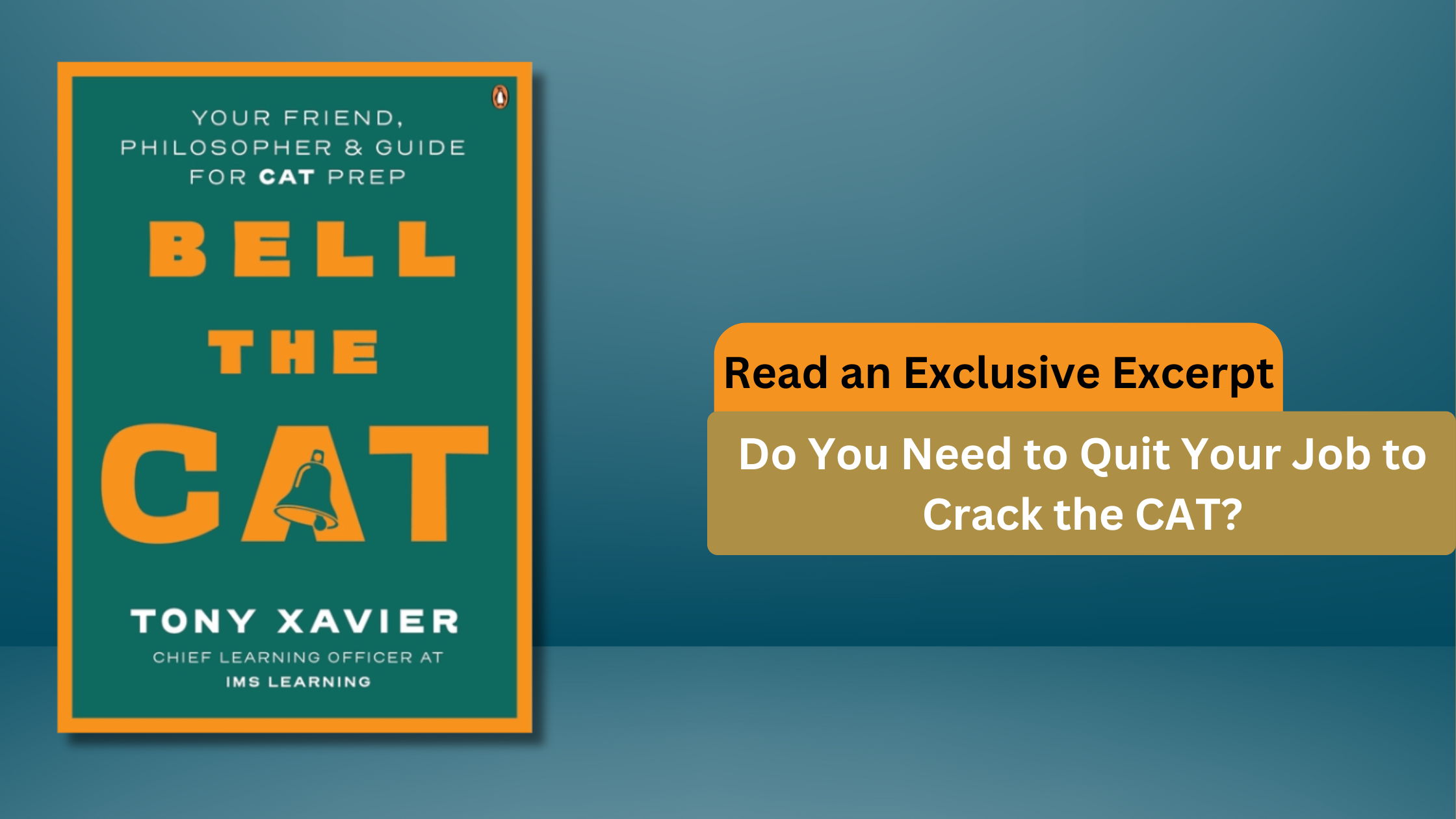
Should I Quit My Job to Prepare for the CAT?
This is one of the questions that I am asked most often, if not the most asked question! The question is also most likely to come from aspirants whose first or past attempts did not go well and who are thus looking to mount a serious retake attempt. You might also have these questions in your mind:
- Is it wise to quit my job to prepare for the CAT?
- Will quitting my job have a negative impact on my profile?
- How can I prepare if I am working twelve hours a day, six days a week?
These are the questions that many aspirants ask themselves since there is a huge premium on acquiring a degree from a prestigious college and an MBA is for most the last big shot that they can take to get a big brand name on their resume. Some might have faced this situation before as well when they had set their eyes for the first time on getting two Is—the IITs.
There are other reasons as well, ranging from a mind-numbingly monotonous IT job to a horrible boss, to the existential dread: What will become of me and my life if I am stuck in my current situation forever?
For most of my colleagues, the answer to this question is a simple NO. Quitting your job is akin to committing professional hara-kiri. But I think, under certain circumstances, quitting your job might be the best option in front of you with the proviso that:
- You quit at the right time, and
- You do more than just prep for the CAT
How will quitting affect your profile in terms of getting into an IIM?
First, let us look at the quantitative effect of quitting your job on your chances of getting a shortlist.
There are colleges, such as IIM-B and others, that give a weightage to work experience in the shortlisting process. In such cases, you will lose out on valuable points and will hence have to score higher on the test to get the shortlist than if you had stuck on in your job. So yes, there is a clear quantitative effect.
If you have two or more years of work experience, as of July of the year you will take the CAT, and the rest of your profile—Class X, Class XII, grad marks—is good, you can, on average, score 0.5–0.75 percentile points lower than someone with no or low work experience. So, those with two years of work experience can get an IIM-B call at a 98.5 percentile whereas freshers have to score in excess of 99.4. But remember that this is only in the case of institutes that give a weightage to work experience.
Just like they have for academics, even for work experience points are awarded based on slabs— less than twelve months, twelve to twenty-four months, etc. IIM-B gives maximum points for work experience of thirty-six months and above. So, if you have more than thirty-six months you are not going to get any more marks than you will if you have exactly thirty-six months.
In effect, if you have thirty-six months’ work experience, quitting your job will not have any mathematical impact on your profile rating.
Will quitting affect your prospects during summer and final placements?
IIMs and other top schools slot candidates into two categories for placements—regular and lateral.
Lateral placements are for people with a certain amount of work experience for roles that are above entry-level management roles. What is that certain amount of work experience?
It differs from college to college. Some base it on the absolute number of months such as twenty- two—IIM-B, while others decide the exact number based on the average work experience in the batch—IIM-A. Either way, it usually falls into the twenty to twenty-four-month range. Also, it is important to note that for some domains and for some firms, work experience is a must-have and hence, recruiters look purely at lateral candidates. What are the domains where relevant work experience is a prerequisite?
Operations roles, for example, most definitely go to people who have experience in shop-floor, product design, logistics, supply chain management, etc. So, engineers working in operations will do well to finish working for two years before entertaining thoughts of quitting. The rationale is simple: an individual with an idea of any aspect of operations cannot be given a managerial role since the stakes are very high.
IT consulting roles, for example, again typically go to those with two-plus years of experience in software. Again, the rationale is the same—an individual who has not worked on large-scale IT projects cannot take up consulting roles in IT. There might be exceptions to this rule but by and large, the rule holds.
***
Get your copy of Bell the Cat by Tony Xavier on Amazon or anywhere books are sold.









